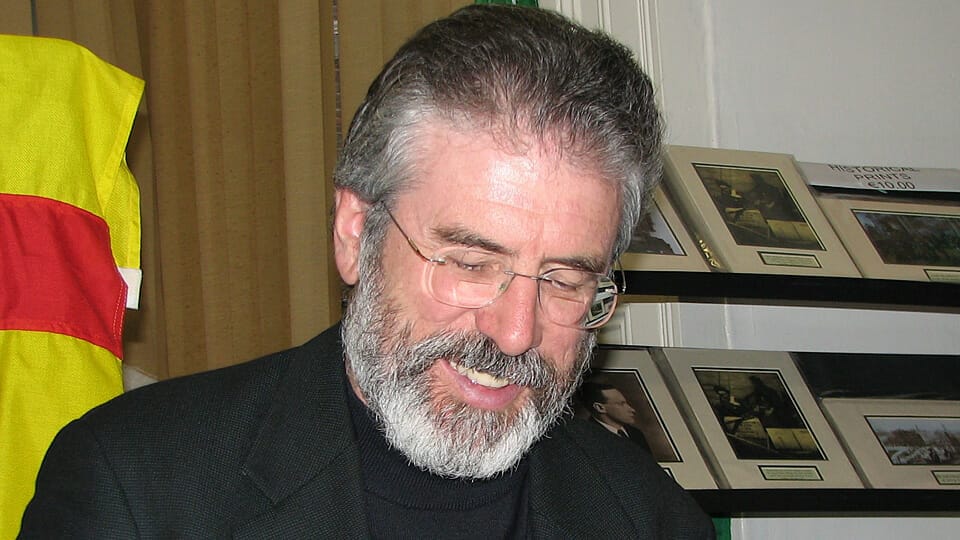Belfast Telegraph ✒ Three bombing victims have sued former Sinn Fein president Gerry Adams. Recommended by Carrie Twomey.
John Clark, a victim of the March 1973 Old Bailey bombing in London; Jonathan Ganesh, a victim of the February 1996 London Docklands bombing; and Barry Laycock, victim of the June 1996 Arndale shopping centre bombing in Manchester, have sued Mr Adams and the Provisional IRA and want “nominal” – £1 – damages.
| Brian Farmer |
Three mainland bombing victims have accused former Sinn Fein president Gerry Adams of seeking to “close down any public hearing in which his membership of the Provisional Irish Republican Army might be evidenced and established”.
John Clark, a victim of the March 1973 Old Bailey bombing in London; Jonathan Ganesh, a victim of the February 1996 London Docklands bombing; and Barry Laycock, victim of the June 1996 Arndale shopping centre bombing in Manchester, have sued Mr Adams and the Provisional IRA and want “nominal” – £1 – damages.
A barrister leading Mr Adams’s legal team told a High Court judge in London on Tuesday that damages claims brought against the Provisional IRA should be struck out.
But a barrister leading the three claimants’ legal team argued Mr Adams’s application to strike out the claims against the Provisional IRA should be dismissed and said a trial should be progressed.
Mr Justice Soole is considering Mr Adams’s application at a High Court hearing in the Royal Courts of Justice complex.
The hearing is due to end on Wednesday and the judge is expected to deliver a ruling in the near future.
But a barrister leading the three claimants’ legal team argued Mr Adams’s application to strike out the claims against the Provisional IRA should be dismissed and said a trial should be progressed.
Mr Justice Soole is considering Mr Adams’s application at a High Court hearing in the Royal Courts of Justice complex.
The hearing is due to end on Wednesday and the judge is expected to deliver a ruling in the near future.
Continue reading @ Belfast Telegraph.

































